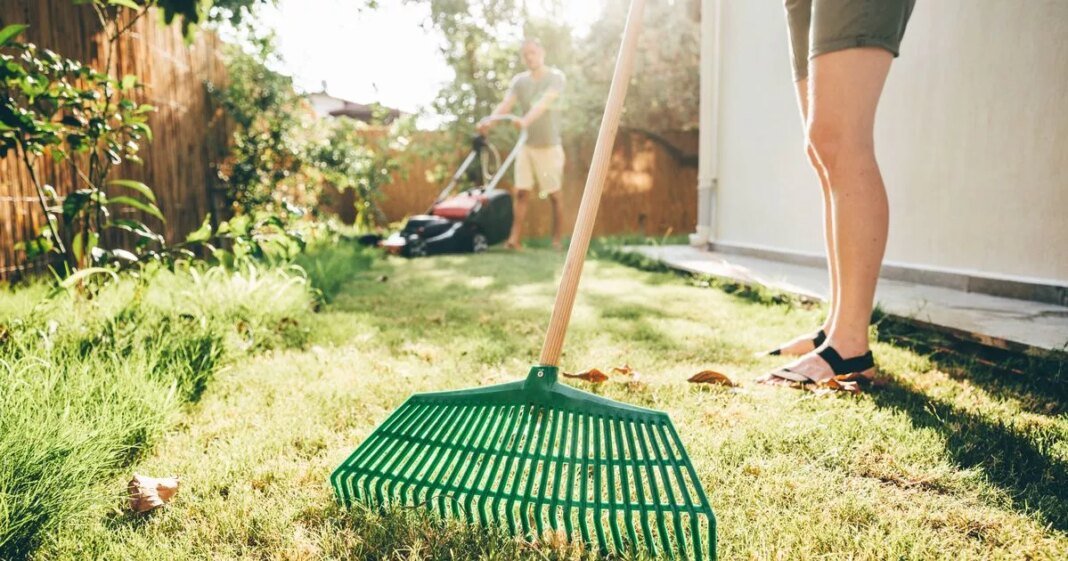Moss is a common problem in gardens and lawns, particularly thriving in damp, shaded areas.
It forms thick, carpet-like patches and competes with grass for nutrients and moisture. Moss tends to flourish in poorly maintained lawns where the grass is thin and the soil is undernourished.
These conditions allow moss and weeds to gain an advantage. It can feel like a never-ending cycle as a poor lawn encourages more moss, which in turn weakens your grass even further.
There are some quite harsh chemical treatments available that will eradicate the moss in your lawn. However, these chemicals can be detrimental to your soil and the wildlife that depends on your garden for survival.
Fortunately, gardening expert Monty Don has come to the rescue, sharing his method for naturally removing moss – and all you need is a fork. You can grab a garden fork for just £7 now at Wickes. Monty asserted that moss is “always a symptom” of poor drainage, exacerbated by shade.
He explained that the “answer” to moss is to tackle it at least once a year by sticking a fork in the ground and wiggling it about, repeating this every six inches or so. This process is known as aeration, reports the Express.
After using the fork, mix equal parts of sieved topsoil, sharp sand and leaf mould or compost. If you don’t have these items readily available, then just sharp or silver sand will do the job just as well, according to Monty.
After aerating your lawn, Monty recommends spreading the loam and sand mixture across the area and working it in with a stiff broom to fill the holes, thus enhancing drainage and feeding the grass. He then advises giving the grass a thorough “good scratch” using a wire rake to remove moss, which is essential for letting light and water reach the soil and roots.
You can buy a wire rake for just £11.25 at Wickes, a small price for a well-kept garden. After collecting the debris for composting and mowing the lawn, he notes: “It will look a little bald for a week or so but will grow back thicker than ever.”
Beware though – Monty warns that cutting the grass too short can stress it out, diminishing vitality and encouraging moss to take over.
At Reach and across our entities we and our partners use information collected through cookies and other identifiers from your device to improve experience on our site, analyse how it is used and to show personalised advertising. You can opt out of the sale or sharing of your data, at any time clicking the “Do Not Sell or Share my Data” button at the bottom of the webpage. Please note that your preferences are browser specific. Use of our website and any of our services represents your acceptance of the use of cookies and consent to the practices described in our Privacy Notice and Cookie Notice.

